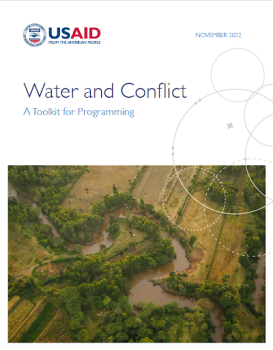USAID has released its revised Water and Conflict Toolkit, first published in 2014. As of 2015, 177 million people lacked basic drinking water and 284 million people did not use basic sanitation in conflict-affected settings. In the face of increasing and protracted conflict and crises around the world, USAID strives to lead and influence development programming to move beyond conventional water, sanitation, and hygiene (WASH) service provision to advance water security, sanitation, and hygiene (WSSH) in fragile and conflict-affected settings. This practical toolkit provides guidance for implementing partners, USAID staff, and other stakeholders who support the Global Water Strategy and White House Action Plan on Global Security to better understand the connection between water management and key risk factors associated with conflict, address those links, and incorporate conflict integration into water security, sanitation, and hygiene programming. The toolkit is one of a series of forthcoming USAID resources around conflict including land, Feed the Future, food systems, and conflict integration.
Click here to download the toolkit file.
Click here to download the complementary Land & Conflict Toolkit 2.0, which introduces readers to the complex relationship between land and violent conflict and provides guidance on recommended approaches and actions to address some of the root causes of conflict. This understanding can help staff diagnose a problem, support strategic planning, and develop projects and activities that build on a robust appraisal of local context and conditions.


